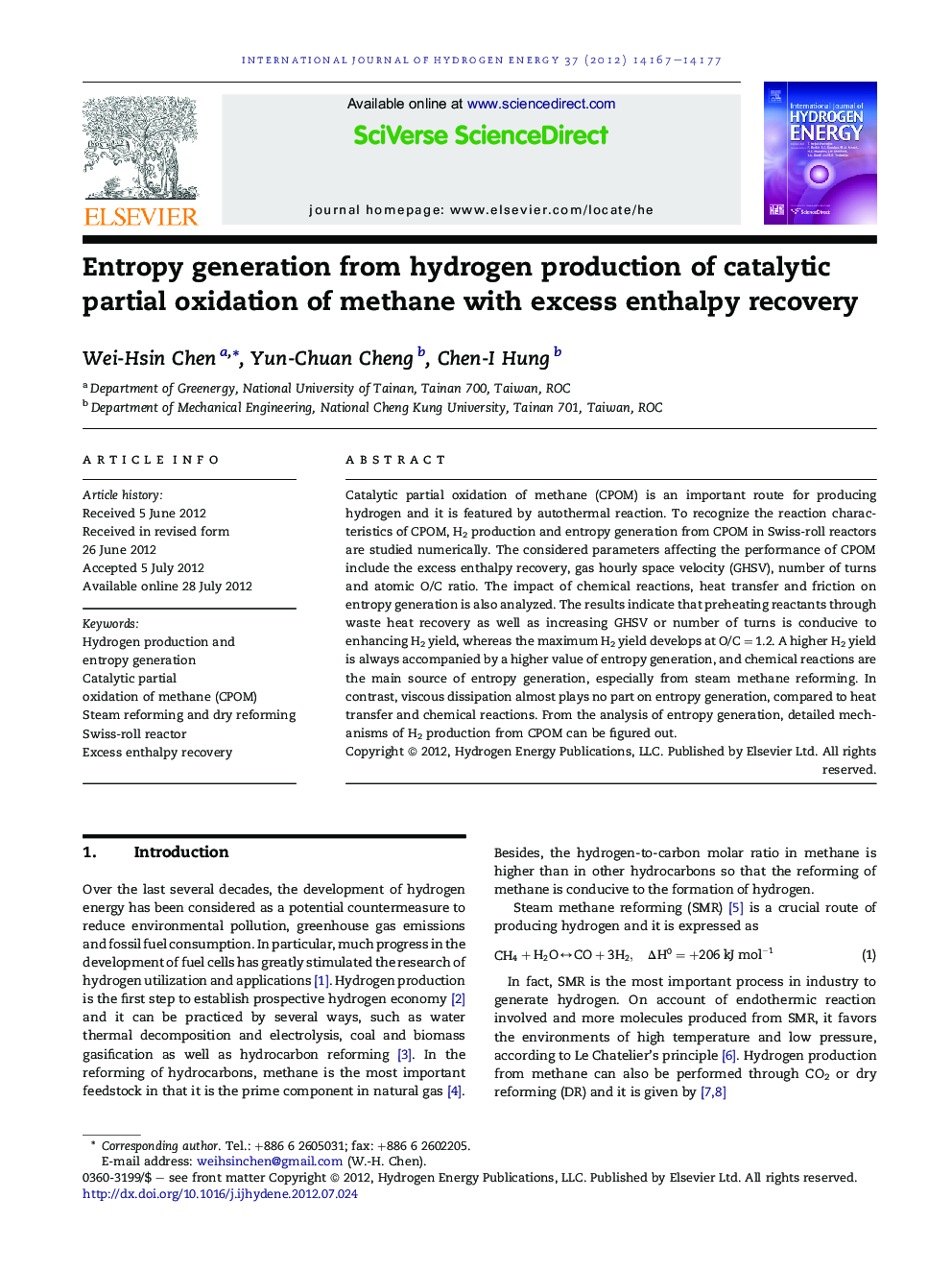| Article ID | Journal | Published Year | Pages | File Type |
|---|---|---|---|---|
| 1274760 | International Journal of Hydrogen Energy | 2012 | 11 Pages |
Catalytic partial oxidation of methane (CPOM) is an important route for producing hydrogen and it is featured by autothermal reaction. To recognize the reaction characteristics of CPOM, H2 production and entropy generation from CPOM in Swiss-roll reactors are studied numerically. The considered parameters affecting the performance of CPOM include the excess enthalpy recovery, gas hourly space velocity (GHSV), number of turns and atomic O/C ratio. The impact of chemical reactions, heat transfer and friction on entropy generation is also analyzed. The results indicate that preheating reactants through waste heat recovery as well as increasing GHSV or number of turns is conducive to enhancing H2 yield, whereas the maximum H2 yield develops at O/C = 1.2. A higher H2 yield is always accompanied by a higher value of entropy generation, and chemical reactions are the main source of entropy generation, especially from steam methane reforming. In contrast, viscous dissipation almost plays no part on entropy generation, compared to heat transfer and chemical reactions. From the analysis of entropy generation, detailed mechanisms of H2 production from CPOM can be figured out.
► Catalytic partial oxidation of methane in Swiss-roll reactors is studied numerically. ► H2 production and entropy generation from the reaction are investigated. ► A higher H2 yield is always accompanied by a higher value of entropy generation. ► Chemical reactions are the main source of entropy generation. ► Viscous dissipation almost plays no part on entropy generation.
